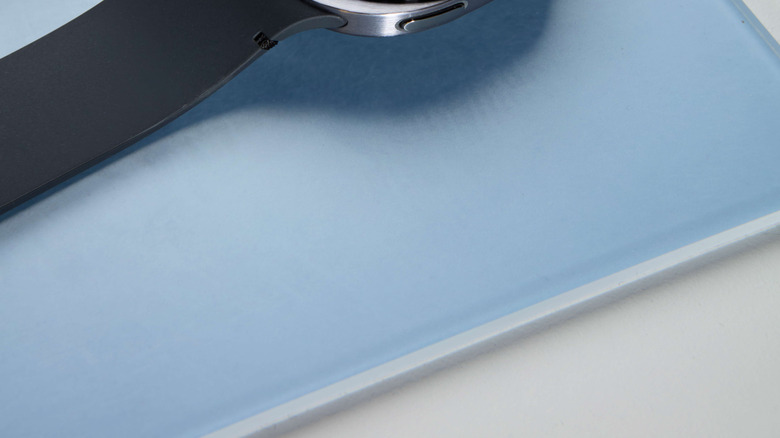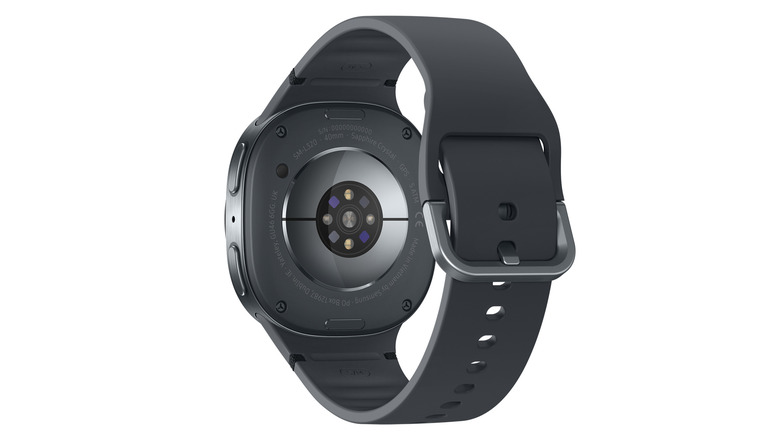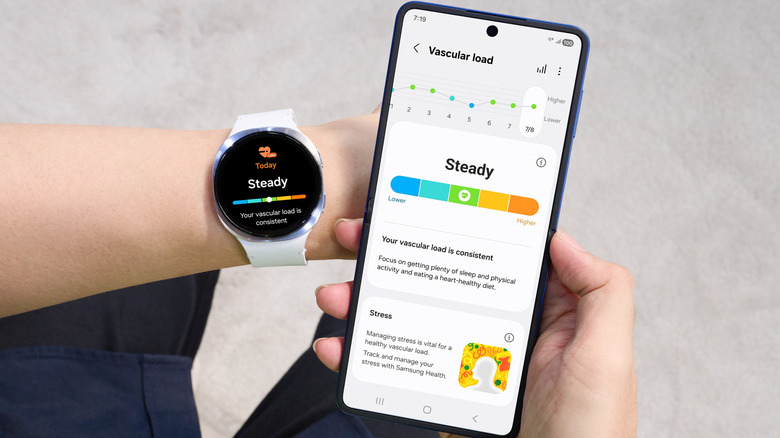Galaxy Watch8 Classic Vs. Watch7: Is Samsung's Latest Worth The Upgrade?
Samsung's brand-new smartwatch lineup for 2025 is here with the Galaxy Watch8. As one of the leading brands for Android smartwatches, it's always exciting to see what Samsung brings to the table. The previous Galaxy Watch7 was well received, pairing a sleek design with a bevy of health sensors, great performance, and a decent software package. So, just what has the Korean tech giant done this year to innovate even further on the Galaxy accessory?
As always, Samsung is focused on health features with the Galaxy Watch8 (did you know the company operates one of the largest hospitals in Seoul? That's just one of the weirdest Samsung products of all time). Since it's 2025, there's also an obligatory slew of features based on AI. Lastly, in what might be a very slick attempt at downplaying the nearly identical internals, the new watches have been completely redesigned.
To dispense with the mystery: if you own the Samsung Galaxy Watch7 and you're happy with it, there's very little to compel an upgrade to the Watch8 this time around. However, for anyone rocking the Watch6, or another watch from more than a year or two ago, it could very well be the smartwatch you've been looking for. As we don't have space to cover every detail, let's break down the major differences between these two premium smartwatches.
Hardware: The Galaxy Watch8 has a new design and slightly bigger battery
The most visible upgrade of the Samsung Galaxy Watch8 over the previous Watch7 is its design. The last generation model has a simplistic, circular design, but Samsung has updated the Watch8 to more closely resemble the rounded square shape of the Watch Ultra. The display is still circular, giving it a "circle inside a square" look that stands out more on the wrist. The only upgrade to the AMOLED display is a peak brightness of 3,000 nits compared to the Watch7's 2,000 nits. In line with the recently released Galaxy S25 Edge and the Galaxy Z Fold 7, the frame on the Watch8 is slightly thinner.
Under the hood, things are familiar. There's no processor upgrade, and the Watch8 keeps the Watch7's 2 GB of RAM and 32 GB of storage. Don't expect a performance bump. The Watch8 has an ever-so-slightly larger battery at 435 milliamp-hours for the 44 mm version or 235 for the 33 mm, which is only 10 and 25 mAh larger than the respective versions of the Watch7. Real-world battery life should remain roughly equal. Additionally, both Galaxy Watches have water resistance ratings for 5 ATM, meaning that they're able to handle up to 164 feet of depth in normal conditions. An updated BioActive sensor can take antioxidant readings, and Samsung claims the GPS is more accurate.
One major point for anyone upgrading is that while the Watch7 supported normal watch bands of the sort you can find at any jewelry store or grab for five bucks on Amazon, the Watch8 has Samsung's new "dynamic lugs system" that will require you to use either Samsung's proprietary bands or third-party bands designed specifically for these models.
Software: The Galaxy Watch8 brings a few new AI features
When it comes to software, the Galaxy Watch8 is shipped with Samsung's latest One UI 8 skin on top of Google Wear OS 6. It brings some decent upgrades, but One UI 8 will also make its way to the Watch7 in the near future. That leaves only a few upgrades that will truly be exclusive to the Watch8, and how much you should care about them depends on how hyped you are for more AI in your devices. Most notably, One UI 8 for Galaxy Watch ditches Google Assistant in favor of Gemini for voice commands. Depending on how you see things, that might be a downgrade, since Gemini still has a frustrating habit of hallucinating commands or falsely claiming it can't follow them. However, Assistant will also be deprecated on the Watch7 with One UI 8.
When it comes to standout features, the Watch7's Energy Score feature, which tells you each morning how rested you are and whether to take it easy, is being iterated upon. Exclusive to the Watch8 is a sleep coaching feature called Bedtime Suggestions that attempts to learn your circadian rhythm and tell you when to go to bed, as well as a tracker for your vascular load during sleep. Anecdotally, this writer has found Energy Scores on the Watch7 to be more or less accurate, so hopefully these souped-up sleep features work equally well. There's also an AI Running Coach tool that will come up with a running plan for you based on your overall fitness, and then the robot will give you Another new addition is the aforementioned antioxidant reading feature, which has yet to be proven accurate.


